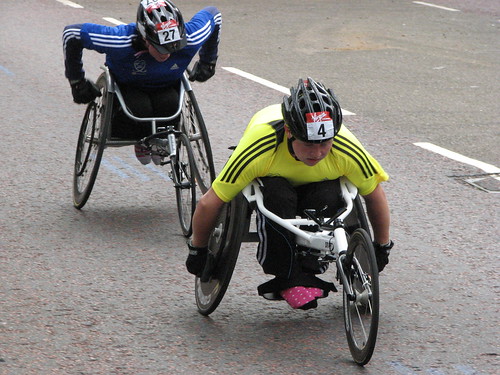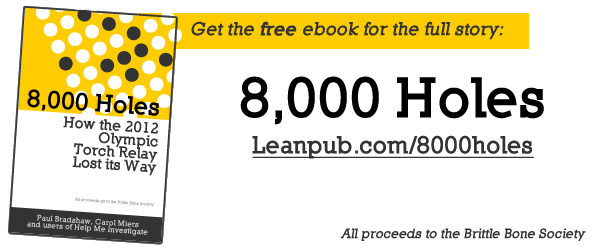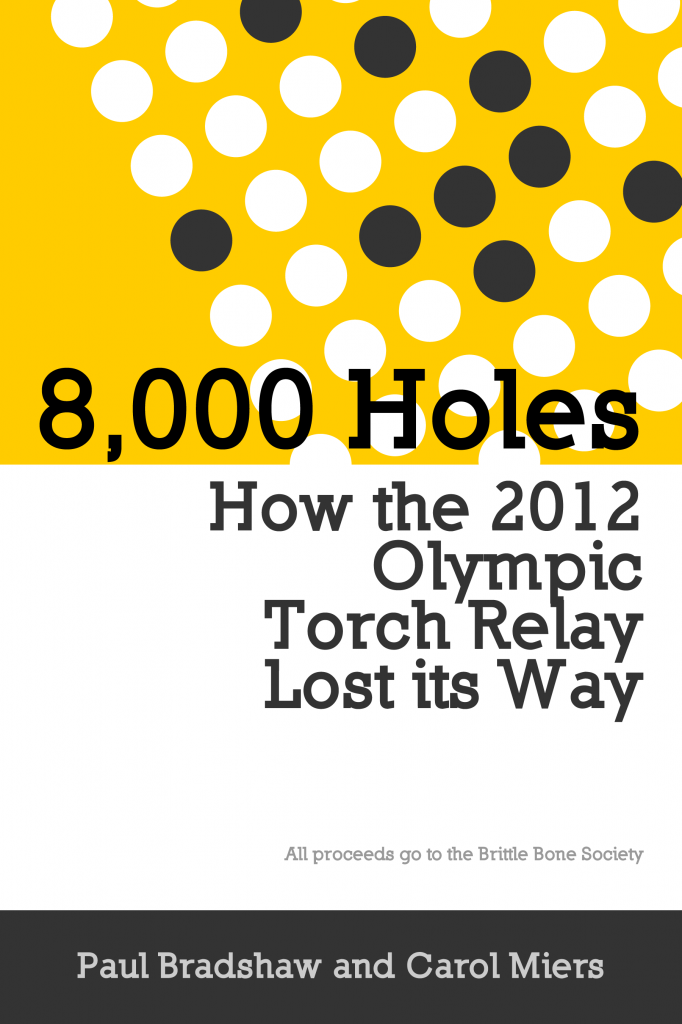
Binstead and Martin, London Mini Marathon. Jack Binstead (U14) and Collette Martin (U17) in the Wheelchairs Mini Marathon on 17 April 2011. Taken from Birdcage Walk by Snappa.
For the book 8,000 Holes: How the 2012 Olympic Torch Relay Lost its Way Carol interviewed the mother of wheelchair racer Jack Binstead. Here we publish a more in depth interview with Jack and his family.
Wheelchair athlete Jack Binstead is now aiming for the 2016 Paralympics after the disappointment of missing out on being a torch bearer in his home town of Kingston-on-Thames.
Jack got through to the final stage but the story of how the fifteen year old Kingston kid known as Wheelz to his 3,000 Twitter followers, was overlooked by LOCOG, is heartbreaking.
“I have raced the London mini-marathon five or six times and I have won about three times. Obviously I wanted to be selected and I understand, but I was told that the people who are carring it aren’t actually from the Borough and that is one thing that isn’t good,” Jack said. Continue reading


